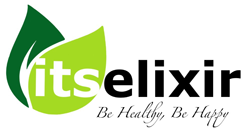
One of the main concerns with turning to a plant-based diet is vegan hair loss. The average human has around 100,000 hairs on their head and naturally loses about 100 per day.
Various things can increase that rate of hair loss, including hereditary conditions, stress and rapid weight loss. However, if you’ve recently started losing hair more rapidly than usual while eating a vegan diet, you’ve probably found the culprit.
Why can you experience hair loss on a vegan diet?
Eating vegan brings several health benefits, including lowered risk of conditions such as diabetes and high blood pressure. Coupled with a vegan hair care routine, it’s also incredibly good for the environment.
It’s also true that a vegan diet can leave you lacking in particular nutrients. That’s not to say that a vegan diet is bad for you – it just requires more planning and awareness of some crucial nutrients, and how to get them.
Links between being vegan and hair loss
Our hair is just like any other part of the body. It’s a living thing that needs vital nutrients to stay strong and grow, along with regular treatments, such as hair masks. Some nutrients can be in short supply on a fully vegan diet. Let’s look at what they are.
Protein
Not getting enough protein is one of the most common (and laziest) criticisms of a vegan diet. In some cases, though, it can be true. Meat is usually a human’s primary source of protein, so you’ll have to look elsewhere when eating a plant-based diet.
The effort is worth it. Protein is critical to our wellbeing. Protein deficiency can cause weight and muscle loss, fatigue, and – sometimes – hair loss. On a vegan diet, you should make sure you get enough protein from foods such as:
- Pulses and legumes (beans especially)
- Tofu
- Quinoa
By introducing these into your diet, you’ll get enough protein while totally avoiding meat.
Iron and zinc
If you’re experiencing hair loss on a vegan diet, a lack of iron or zinc could be to blame. Hair loss is a symptom of iron-deficiency anaemia – this is down to iron from plant-based foods being more difficult to absorb than animal-based iron. Zinc is also a key nutrient that can be under-consumed on a vegan diet.
Luckily, several delicious vegan-friendly foods are rich in iron:
- Beans
- Nuts
- Leafy greens.
To get more zinc into your diet, consider:
- Wheat
- Seeds
- Nuts
These two nutrients are critical for the health of your body and hair. In some cases, you might consider taking supplements, including multivitamins, that provide enough iron and zinc.
Vitamin B12
Another major culprit of vegan hair loss is a vitamin B12 deficiency. It’s another nutrient found mainly in meat, fish and dairy products, so it can be in short supply when you go vegan. B12 is critical for your hair health, and a lack of it can lead to dry scalp and hair loss. Yeast, grains and cereals contain B12 and should be incorporated into your diet. Otherwise, supplements may help.
Healthy inside and out
Once you’ve made sure your vegan diet provides enough nutrients, you can use nourishing treatments to keep your hair strong. Consider using henna for hair growth stimulation. Our henna collection is 100 per cent vegan and provides some well-deserved TLC for your hair.
Vegan power
In some cases, a vegan diet can leave you lacking in certain vital nutrients. But, with careful planning, you can eat a plant-based diet and keep your hair healthy and strong. Learn more about vegan hair care at itselixir’s blog.
